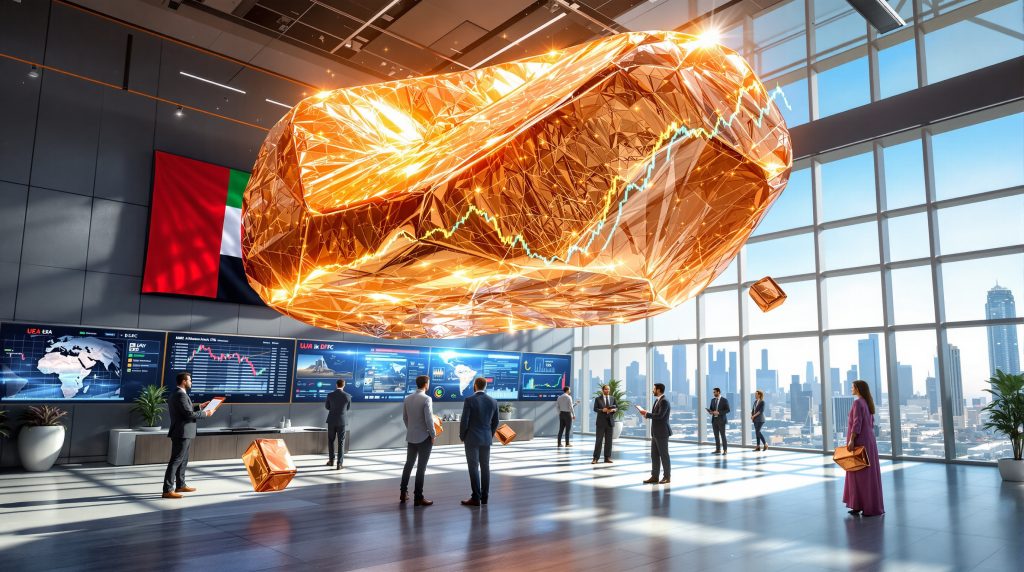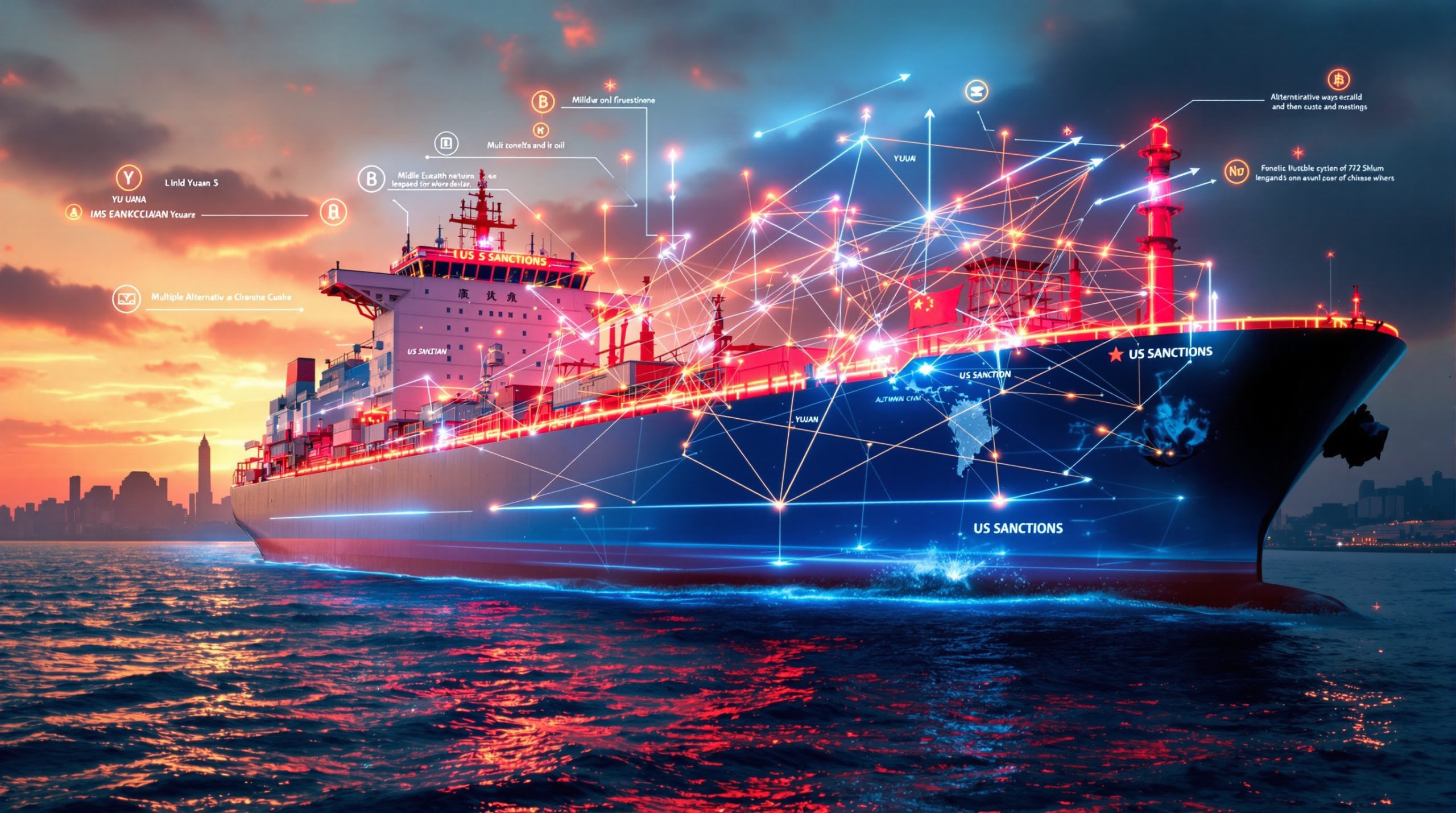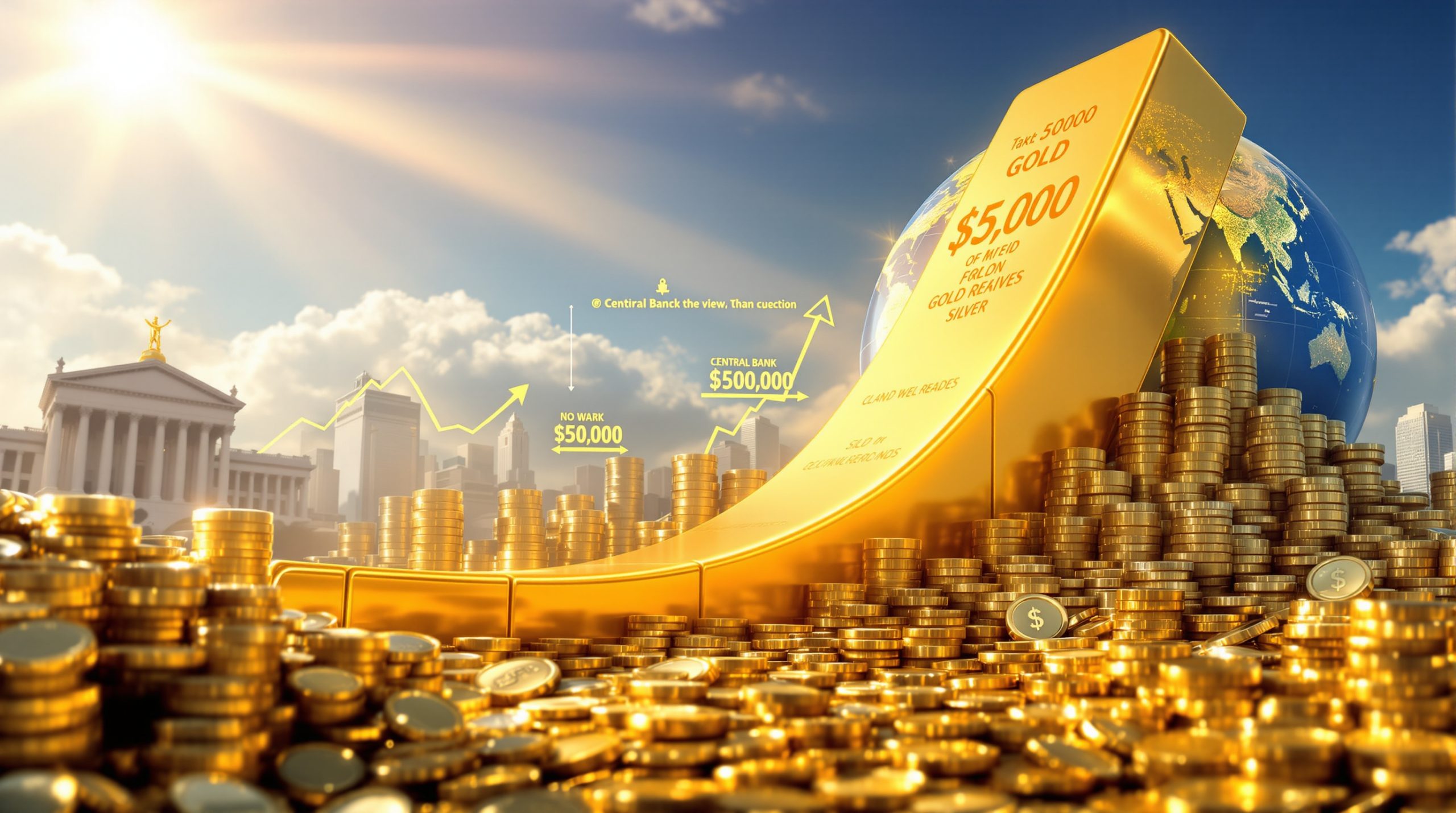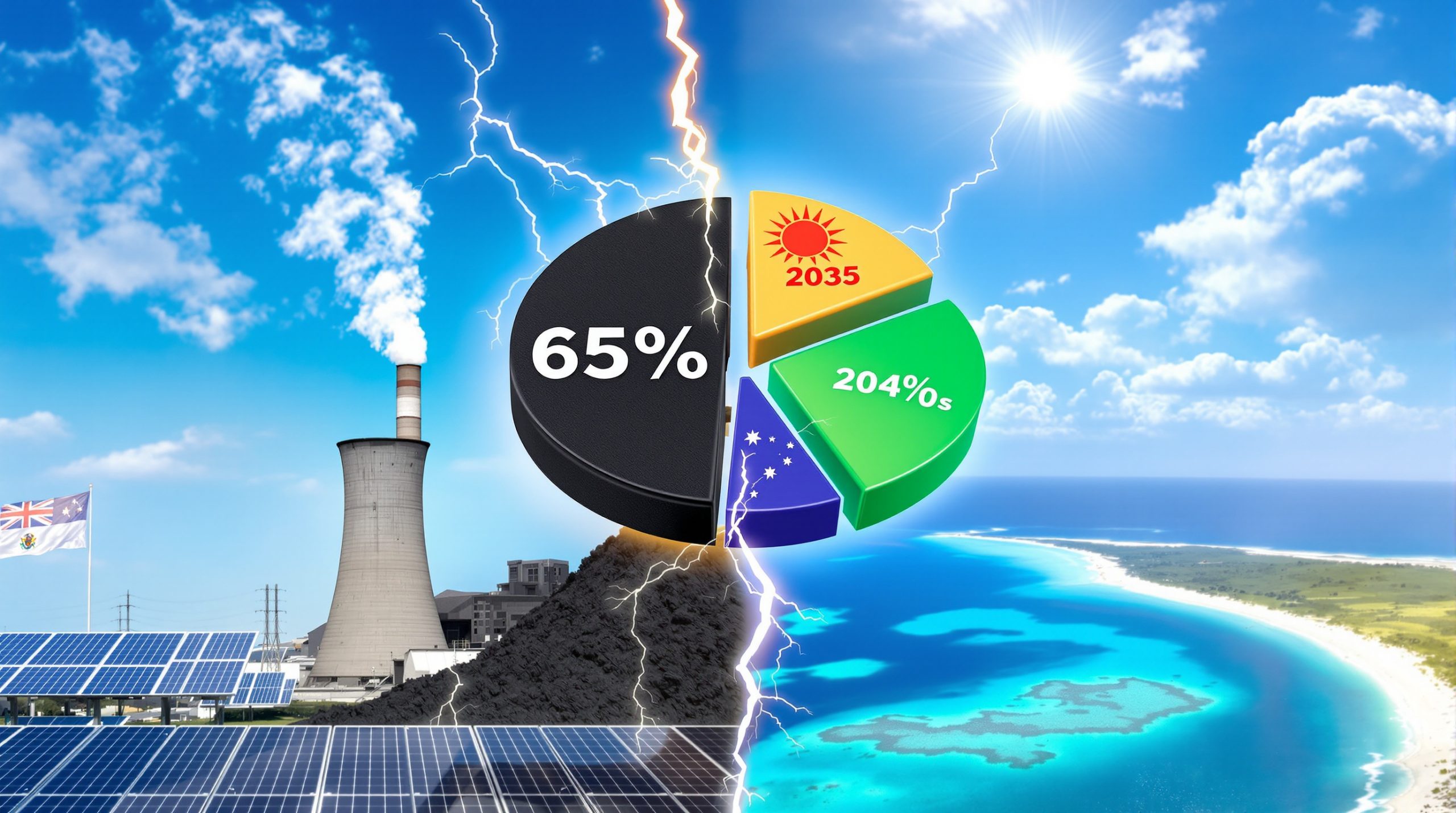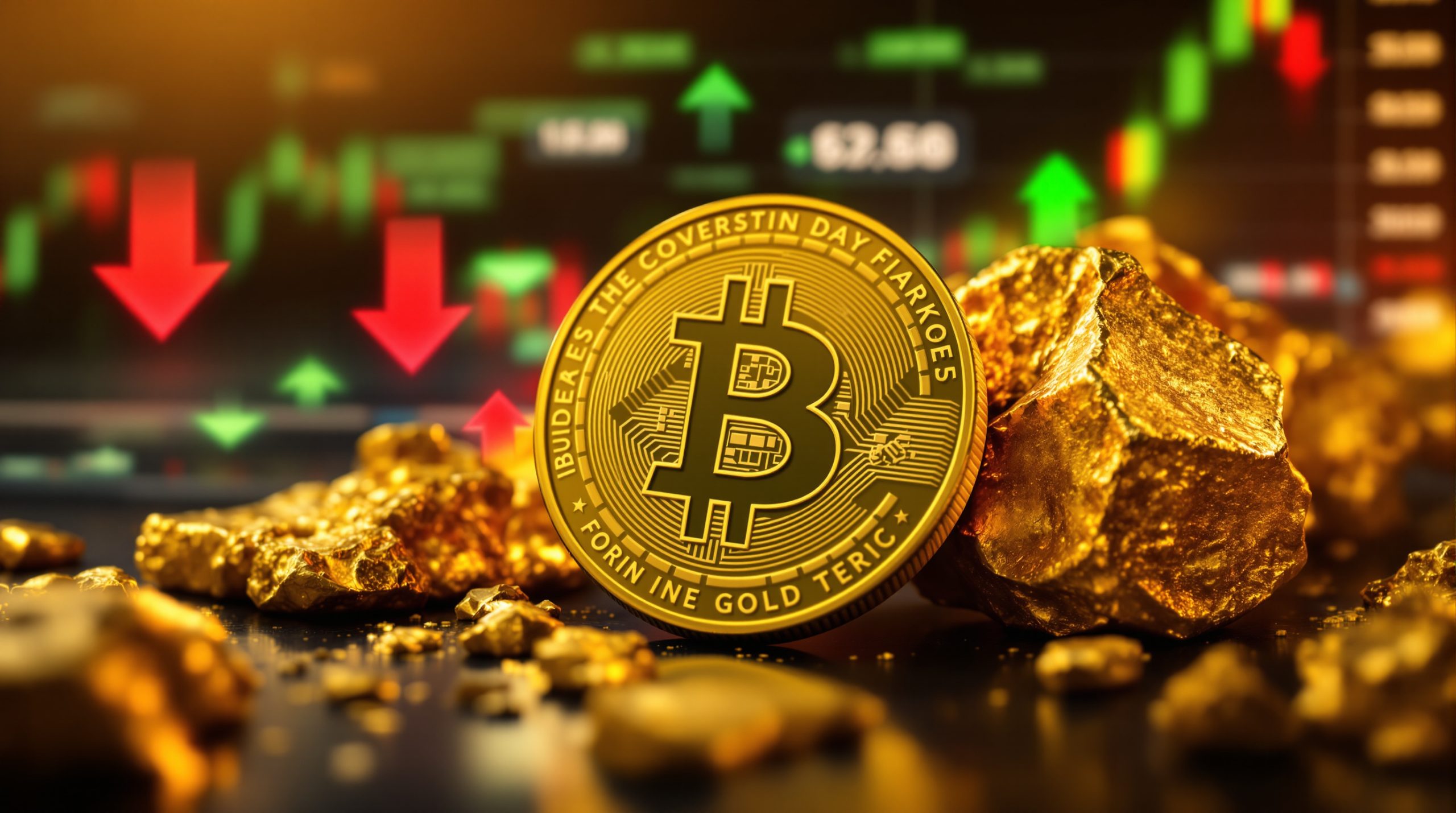How IRH Trading Is Expanding Its Copper Operations by 2030
IRH Trading, the Abu Dhabi-based commodities trading firm, has launched an ambitious strategy to become a major player in the global copper market. With a target of handling 1 million tonnes of copper annually by 2030, the company is leveraging sovereign backing and strategic mining investments to establish itself in a competitive landscape dominated by established trading houses.
Currently trading approximately 150,000 tonnes of copper in 2025, with expectations to reach 200,000 tonnes by year-end, IRH Trading represents the growing ambitions of the United Arab Emirates to establish Abu Dhabi as a significant commodities trading hub alongside traditional centers like Geneva and Singapore.
What's Driving IRH Trading's Copper Expansion Strategy?
Strategic Vision and Timeline
IRH Trading has set a bold target of reaching 1 million tonnes of annual copper trade by 2030, which would represent a five-fold increase from its expected 2025 volume. Having established its trading operations just one year ago, the company has quickly built a team of approximately 50 traders and has already made significant inroads in the copper market.
Currently, about 60% of IRH Trading's copper volume is sourced from its parent company's mining assets, with the remaining 40% coming from third-party suppliers. This balanced approach allows the company to leverage its owned assets while building relationships with external suppliers across multiple continents.
Sovereign Backing and Long-Term Approach
A key differentiator for IRH Trading is its backing by International Holding Company (IHC), a UAE-listed conglomerate with a market capitalization exceeding $200 billion as of October 2025. This sovereign-linked support enables the company to take a distinctly long-term approach to its investments and trading strategies.
According to Vineet Mehra, CEO of IRH Trading, the company evaluates investments on a 20-30 year horizon rather than seeking short-term returns. This patient capital approach stands in contrast to many traditional trading firms that operate on shorter timeframes, giving IRH Trading a unique position in the market.
"Our capital allocation is more long term and more patient than short-term attempts," Mehra explained in a recent interview with Fastmarkets. "We aim to become a player of choice in the regions where we operate."
This long-term perspective aligns with the UAE's broader economic diversification strategy, which includes positioning Abu Dhabi as an emerging commodities trading hub alongside established centers like Singapore and Geneva.
What Mining Assets Support IRH Trading's Copper Expansion?
Strategic African Mining Investments
The foundation of IRH Trading's copper investment strategies rests on two major mining investments made by its parent company, International Resource Holding (IRH):
- A controlling 51% stake in Mopani Copper Mines in Zambia, acquired for $1.1 billion in 2024
- A 56% ownership position in Alphamin Resources, a tin producer in the Democratic Republic of Congo (DRC), purchased for $367 million
These strategic acquisitions give IRH Trading direct access to copper production from Mopani and create a platform for expansion in Africa's copper belt region, which spans northern Zambia and southern DRC.
Rather than pursuing aggressive acquisition strategies immediately, the company is focusing on developing its existing assets before considering additional purchases. However, Mehra has indicated that the parent company is exploring potential investment opportunities in the DRC, leveraging its existing presence through the Alphamin stake.
Production Modernization and Scaling
IRH has ambitious plans to increase Mopani Copper Mines' production to 200,000 tonnes within three years through operational improvements and digital modernization. This production target aligns with Zambia's national goal of reaching 3 million tonnes of annual copper production.
The company is implementing digital technologies at Mopani to improve operational efficiency and productivity, though specific technologies have not been detailed publicly. This modernization approach reflects IRH's commitment to long-term asset development rather than short-term optimization.
"We are there for the life of mine," Mehra emphasized. "We are not there for a trade benefit of the 'flavor of the season' of the metals."
This long-term commitment to asset development contrasts with the approach of some mining investors who seek to improve assets for quick resale, often referred to as "flipping" properties.
How Does IRH Trading Position Itself in the Global Copper Market?
Competitive Landscape Navigation
IRH Trading is entering a copper trading space dominated by established players with decades of experience, including major houses like Mercuria, Glencore, and Gunvor. Rather than positioning itself as a direct competitor, IRH Trading has adopted a collaborative approach, working alongside these established traders.
Mehra has cited specific examples of cooperation, including selling copper from Mopani Copper Mines to traders like Glencore and Mercuria. This collaborative stance allows IRH Trading to leverage existing market relationships while building its own trading networks.
The company's sovereign backing enables it to pursue longer-term strategies than many traditional traders, potentially giving it an advantage in certain market contexts. While established trading houses often focus on shorter-term arbitrage opportunities, IRH Trading can take positions aligned with multi-decade market trends.
Supply Chain Integration
Beyond its owned mines, IRH Trading is developing comprehensive supply networks across multiple continents. The company sources copper from Africa, Latin America, North America, and Asia, building relationships with miners and buyers globally.
A key element of its strategy involves integration with other Abu Dhabi-based companies for logistics and infrastructure support. For example, IRH Trading collaborates with AD Ports Group, which operates the Dar es Salaam port in Tanzania. This port serves as a crucial export route for copper from Zambia's Copperbelt region.
"AD Ports helps us on the logistics side. This involves offtake of metal and also the intake of the fuel and storage that comes in," Mehra explained.
The company is also developing capabilities in power trading and fuel supply to optimize operational costs for mining operations in the African copper belt, demonstrating an integrated approach to the entire supply chain.
What Additional Commodities Feature in IRH's Expansion Plans?
Diversified Metals Trading Portfolio
While copper remains central to IRH Trading's strategy, the company is actively expanding into other metals trading, including aluminum, zinc, and tin. According to Mehra, the company has already begun trading zinc and aluminum in 2025 alongside its copper operations.
IRH Trading has set a target of trading 1 million tonnes of metals beyond copper by 2030, establishing ambitious growth goals across multiple commodities. This diversification strategy reduces the company's dependence on copper markets while leveraging similar trading expertise across various metals.
The company has also taken a strategic "long" position on lithium from a trading perspective, although the parent company does not currently plan to invest in lithium mining assets. This approach allows IRH Trading to participate in the energy transition metals market without committing capital to lithium production.
Energy Commodities Integration
Beyond metals, IRH Trading is developing capabilities in energy commodities, including steel, crude oil, and liquified natural gas (LNG). This integrated approach to energy and metals trading reflects the interconnected nature of these markets and allows the company to optimize across commodity classes.
A subsidiary called 2PointZero focuses specifically on renewable energy and energy storage solutions, building capacity to serve not only IRH's mining operations but the entire copper belt region. This integration of renewable energy with mining operations represents an innovative approach to addressing power challenges in mining regions.
The company's power trading capabilities can directly support mining operations in the African copper belt, which has historically faced challenges with reliable electricity supply. By trading both the metals and the energy required to produce them, IRH Trading creates operational synergies that may provide competitive advantages.
How is IRH Approaching Sustainability and Regional Development?
Infrastructure Development
IRH Trading's parent company is taking a holistic approach to infrastructure development in its operating regions, particularly in Africa's copper belt. Through its 2PointZero subsidiary, the company is building renewable energy capacity that will extend beyond its own operational needs to serve the broader region.
"We have a subsidiary called 2PointZero, which looks at the renewable and energy storage side, to build out capacities. These capacities are not only for us, but for the entire copper belt," Mehra stated.
This approach addresses one of the major challenges facing copper production in Zambia and the DRC – reliable energy supply. By investing in power infrastructure beyond its immediate needs, IRH can support broader regional development while securing its own operations.
Similarly, the partnership with AD Ports for logistics through Tanzania's Dar es Salaam port aims to improve the entire export corridor for copper from the region, benefiting multiple producers and supporting economic growth.
Strategic Regional Partnerships
IRH Trading places strong emphasis on Africa in its strategic outlook, with Mehra noting that "Africa and the UAE share a very large strong bond." This regional focus leverages existing diplomatic and business relationships between the UAE and African nations.
The company collaborates with other Abu Dhabi-based entities for logistics, infrastructure development, and energy supply, creating an ecosystem of complementary capabilities. This collaborative approach allows IRH Trading to offer integrated solutions while reducing operational risks.
While Africa remains the primary focus, the company is also evaluating potential opportunities in Indonesia, Australia, Latin America, and North America. This includes assessment of junior mining companies for possible investment or partnership, though the priority remains developing existing assets before pursuing significant new acquisitions.
What Challenges and Opportunities Exist for IRH's Copper Strategy?
Market Entry Barriers
Despite its ambitious plans and sovereign backing, IRH Trading faces significant challenges in establishing itself in the global copper market:
-
Experience Gap: The company is competing with traders that have decades of market knowledge and established relationships, while IRH Trading has been operating for just over a year.
-
Relationship Building: Commodities trading relies heavily on trusted relationships with suppliers and customers, which take time to develop.
-
Operating Environment Complexity: The company's focus on Africa means navigating complex operating environments in countries like Zambia and the DRC, which present regulatory, infrastructure, and sometimes political challenges.
-
Multi-Commodity Expertise: Developing sufficient trading expertise across multiple commodities simultaneously (copper, aluminum, zinc, tin, energy) requires significant talent acquisition and knowledge building.
Competitive Advantages
Against these challenges, IRH Trading possesses several distinctive advantages:
-
Patient Capital: The sovereign-linked backing from IHC allows IRH Trading to take a genuinely long-term approach, evaluating investments on a 20-30 year horizon rather than quarterly or annual returns.
-
Integrated Approach: By combining mining assets with trading operations and infrastructure development, IRH Trading can create synergies across the value chain that pure-play traders cannot match.
-
UAE-Africa Relationships: Existing diplomatic and business relationships between the UAE and African nations may provide IRH with advantages in market access and stakeholder relationships.
-
Growing UAE Trading Ecosystem: IRH Trading benefits from Abu Dhabi's broader efforts to establish itself as a commodities trading hub, including favorable regulatory and business environments.
IRH Trading's Path to Becoming a Copper Trading Powerhouse
IRH Trading's ambitious copper expansion strategy represents a bold move by an Abu Dhabi-based newcomer into the global commodities trading arena. By targeting 1 million tonnes of annual copper trading by 2030, the company is positioning itself to become a significant player in a market traditionally dominated by established Western and Asian trading houses.
The company's approach combines several distinctive elements:
- Direct ownership of mining assets in Africa's copper belt through its parent company
- A trading operation that sources from both owned mines and third-party suppliers
- Integration with logistics, infrastructure, and energy through partnerships
- A long-term investment horizon enabled by sovereign-linked backing
While challenges remain in competing with established players, IRH Trading's integrated strategy and patient capital approach provide a foundation for sustainable growth. The company's focus on Africa leverages existing UAE-Africa relationships and positions it to benefit from rising copper demand driven by global electrification and energy transition.
If successful, IRH Trading's emergence could represent a shift in global commodities trading patterns, with Abu Dhabi establishing itself alongside traditional hubs like Geneva, Singapore, and London. The company's progress toward its 2030 targets will be watched closely by both established traders and mining companies as an indicator of this potential market evolution.
FAQs About IRH Trading's Copper Expansion
What is IRH Trading's annual copper trading target by 2030?
IRH Trading aims to trade approximately 1 million tonnes of copper annually by 2030, representing a five-fold increase from its expected 2025 volume of 200,000 tonnes.
Who owns IRH Trading?
IRH Trading is a unit of International Resource Holding (IRH), which is backed by United Arab Emirates-listed International Holding Company (IHC), one of the wealthiest conglomerates in the UAE.
What major mining assets does IRH control?
IRH owns a controlling 51% stake in Mopani Copper Mines in Zambia and a 56% stake in Alphamin Resources, a tin producer in the Democratic Republic of Congo.
How does IRH Trading differ from traditional commodity traders?
Unlike many traditional traders, IRH Trading takes a longer-term approach with "patient capital" from sovereign backing, focusing on 20-30 year investment horizons rather than shorter-term trading strategies.
Is IRH Trading focusing exclusively on copper?
No, while copper is a major focus, IRH Trading is also expanding into aluminum, zinc, tin, steel, crude oil, and liquified natural gas (LNG) trading, with a target of trading 1 million tonnes of metals beyond copper by 2030.
Further Exploration:
Readers interested in learning more about global copper trading and mining developments can explore copper price prediction analyses and global copper production outlook studies for additional market insights. Furthermore, those seeking investment opportunities might benefit from reviewing copper investment insights to better understand the evolving market landscape.
Interested in Spotting the Next Major Copper Discovery?
Stay ahead of the market with Discovery Alert's proprietary Discovery IQ model that delivers real-time notifications when significant mineral discoveries are announced on the ASX. Visit the Discovery Alert discoveries page to see how early investors in major copper finds have achieved exceptional returns.
